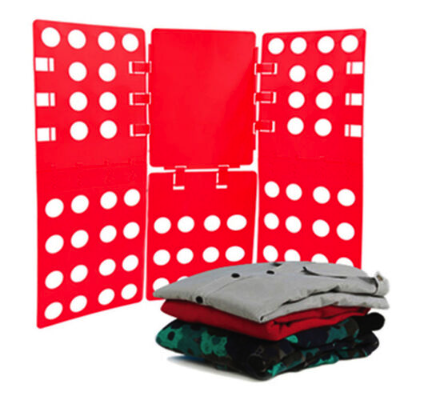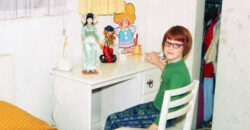Acknowledge that people change

I bought it after seeing a video of a kid using it. It was called a “folding board.” You put your article of clothing on it—let’s say a shirt—and you fold the plastic board parts in a particular order to make a very neat folded shirt. Feliks has always had trouble folding clothes, so I thought he would get a lot of use out of it.
It arrived. I told him what it was, and he took it out of the packaging. “You do know that I fold my own clothes now,” he said-asked. “Well, I just thought this would help you fold them neater,” I offered, thinking about the drawers stuffed with sloppily “folded” shirts.
He held it up. “It is pretty small,” he said, as he left to get a t-shirt to try on the board. He came back in, put the board on the table, and laid his t-shirt on top. It covered the board completely by a wide margin. “I think this is for little kids’ shirts, Mom,” he said. He folded the board parts with the t-shirt hanging out everywhere. It looked worse than the shirts in his dresser drawers.
He and I both started laughing hysterically. When he caught his breath, he looked over at me and said, “How old do you think I am, eight?”
I realized in that instant that the vestiges of childhood still stuck to him, now 19. He is an adult now. He was a different person then. My thinking of him as eight-year-old Feliks is not helpful and it is not accurate. We laughed about my mistake, and I saw it as something bigger. When we infantilize our children, we rob them of their own agency. Plus, what difference does it make that his dresser drawers aren’t as tidy as they could be, in the larger scheme of things?
I had learned this lesson with Emma, but evidently I needed to learn it again. People grow and learn and change. They become more of who they are in the world. Don’t let your narrow experience of someone dictate your future with them. Be curious rather than prescriptive. Amen and Hallelujah.
We returned the folding board and we still laugh about it.









